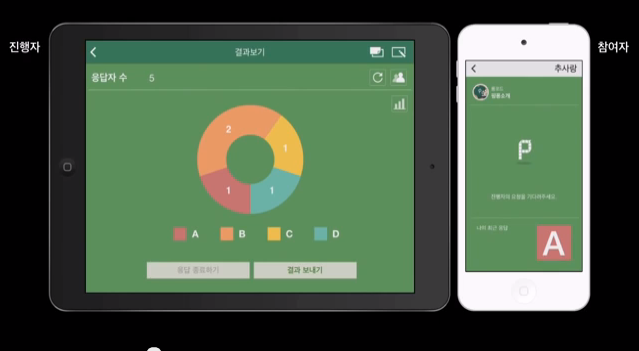South Korean classroom education tool PingPong recently underwent an update. A product of mobile educational app developer Waterbear Soft, Inc., PingPong allows teachers and students to interact digitally in classrooms.
PingPong essentially functions as an iClicker, a remote with which students can answer multiple-choice questions or polls. Instead of a standard clicker that only lets students select multiple-choice answers, PingPong allows for a wider range of actions. Students can submit short answers and drawings, as well as standard multiple-choice options. Teachers can use features such as a blackboard mode, random selector tools and timers that facilitate classroom participation and hands-on learning. These features help create a classroom environment that is more open to interactions between the instructor and students.
PingPong also helps teachers easily manage and retain classroom information. And with the newest version, PingPong 1.40, instructors can more easily manage classroom resources, in addition to having the app’s usual features. The updated version incorporates beacon technology to automatically detect student attendance. Teachers can open a virtual classroom by linking the app to their Facebook, Google or Evernote account, which students can join through the app. The program allows teachers to save class notes and student participation records, and also includes an option to send student data to parents.
South Korea has actively pushed smart classroom technology starting 2010. Many public schools now make use of digital chalkboards, e-textbooks, tablets and smartphones in classrooms. Using technology to facilitate teacher-student interaction is thought to be important in South Korea, where the average class size in secondary school is more than 34 students.
Although applying new and innovative learning technologies has shown an increase in students’ problem identification and understanding skills, it has faced criticism claiming students are more prone to distractions by using mobile devices in classrooms.
Multiple schools in Japan and the South Korean regions of Busan and Jeju currently use PingPong. The app has over 150,000 and 100,000 cumulative downloads in Korea and Japan, respectively. The app also hopes to expand into the US market. Classroom technologies are projected to be in high demand in the United States, where investment in educational technology reached more than $1.1 billion in 2012.



![[BLT칼럼] 아이온큐가 특허로 '기술 신뢰도'를 쌓은 법 : 양자컴퓨팅 시대, IP 전략 제시 8ee48ae3a3a11](https://platum.kr/wp-content/uploads/2025/10/8ee48ae3a3a11-150x150.png)



Leave a Comment